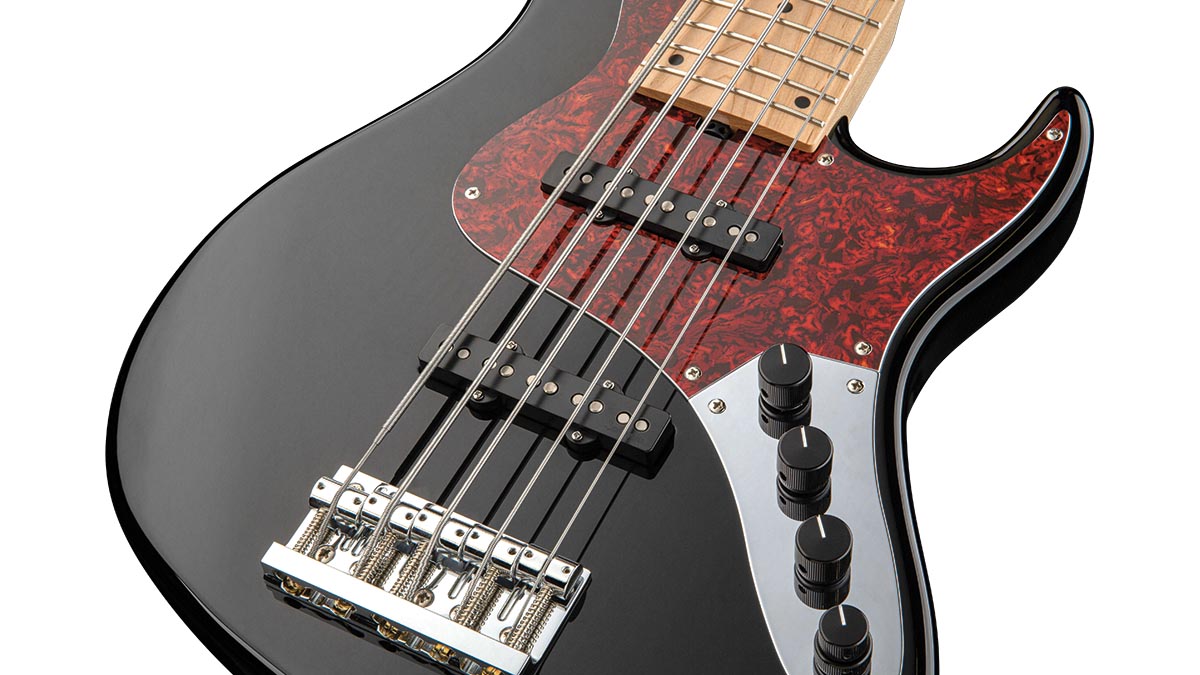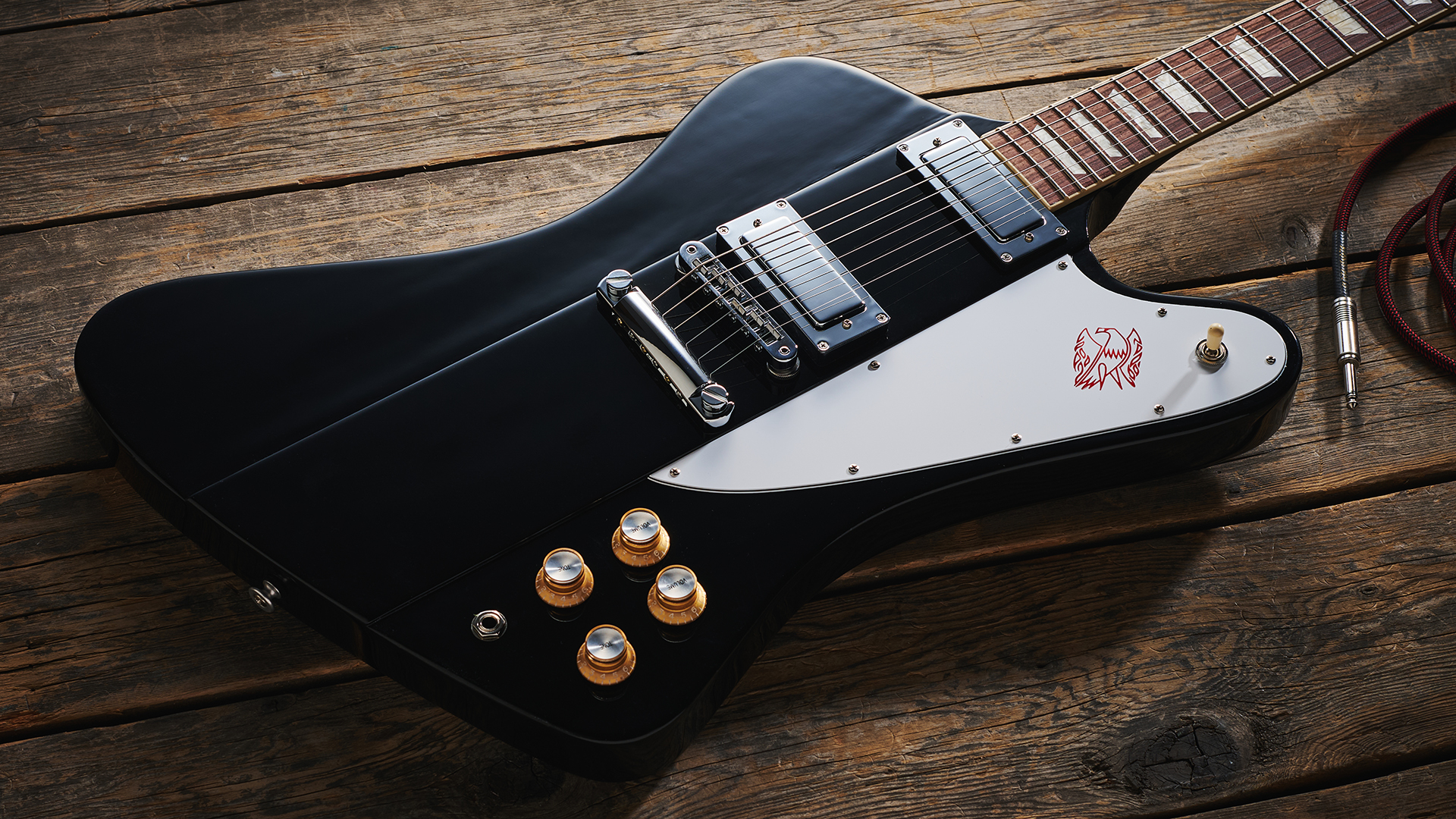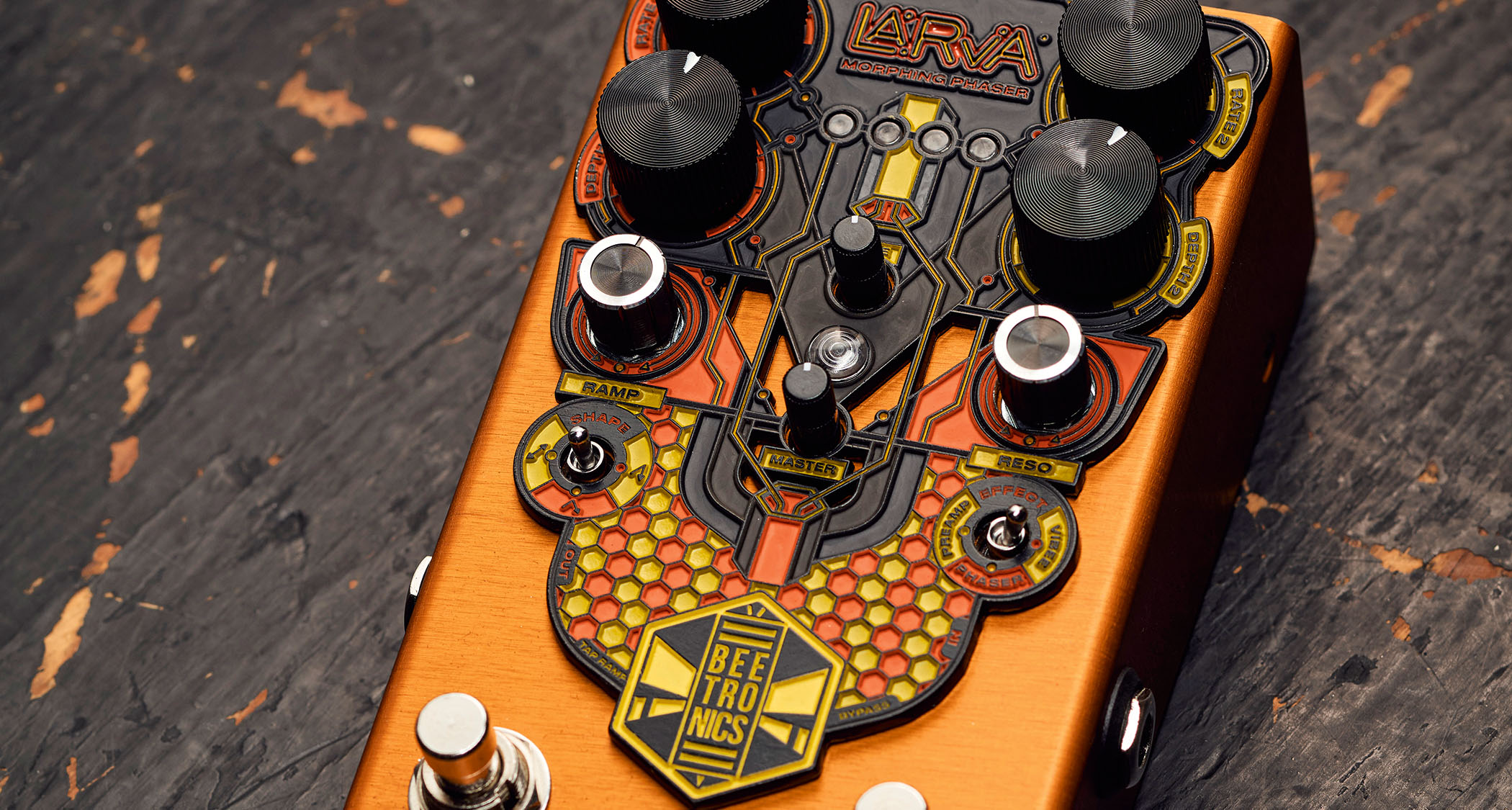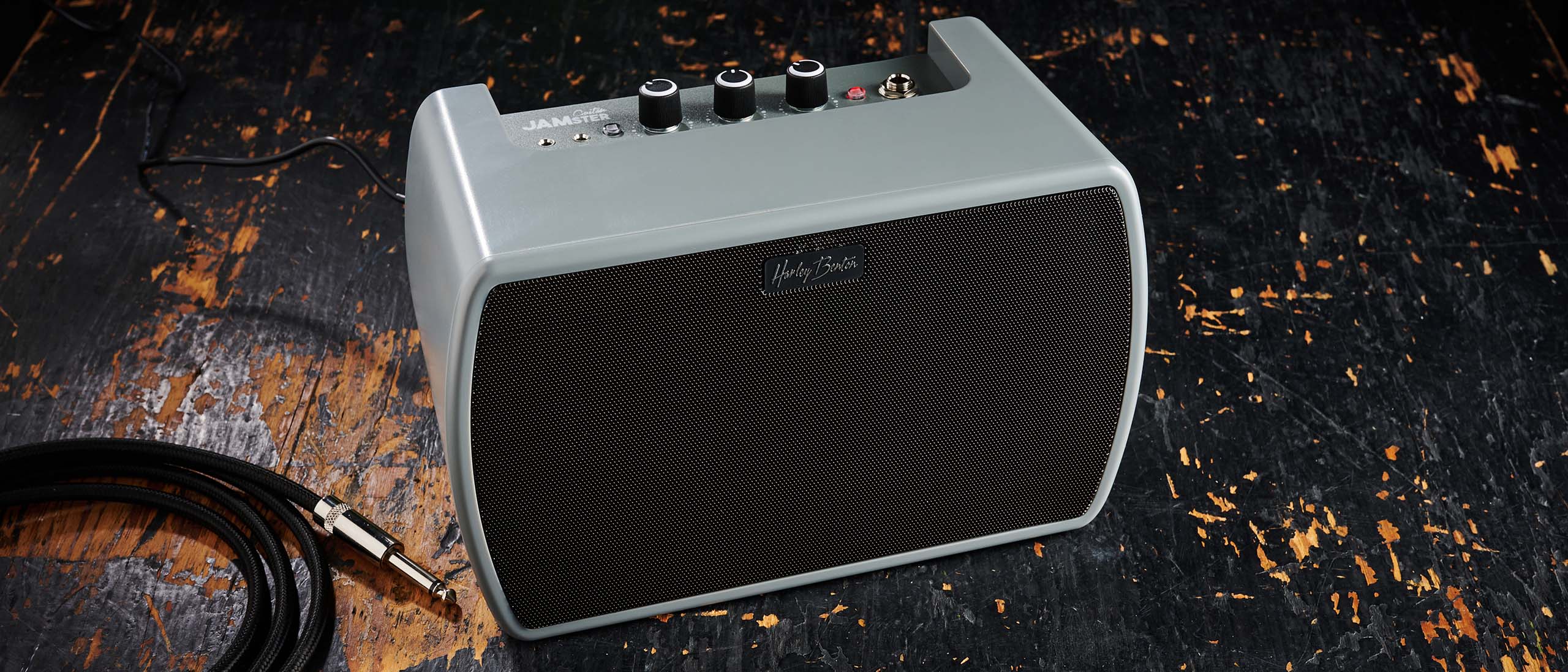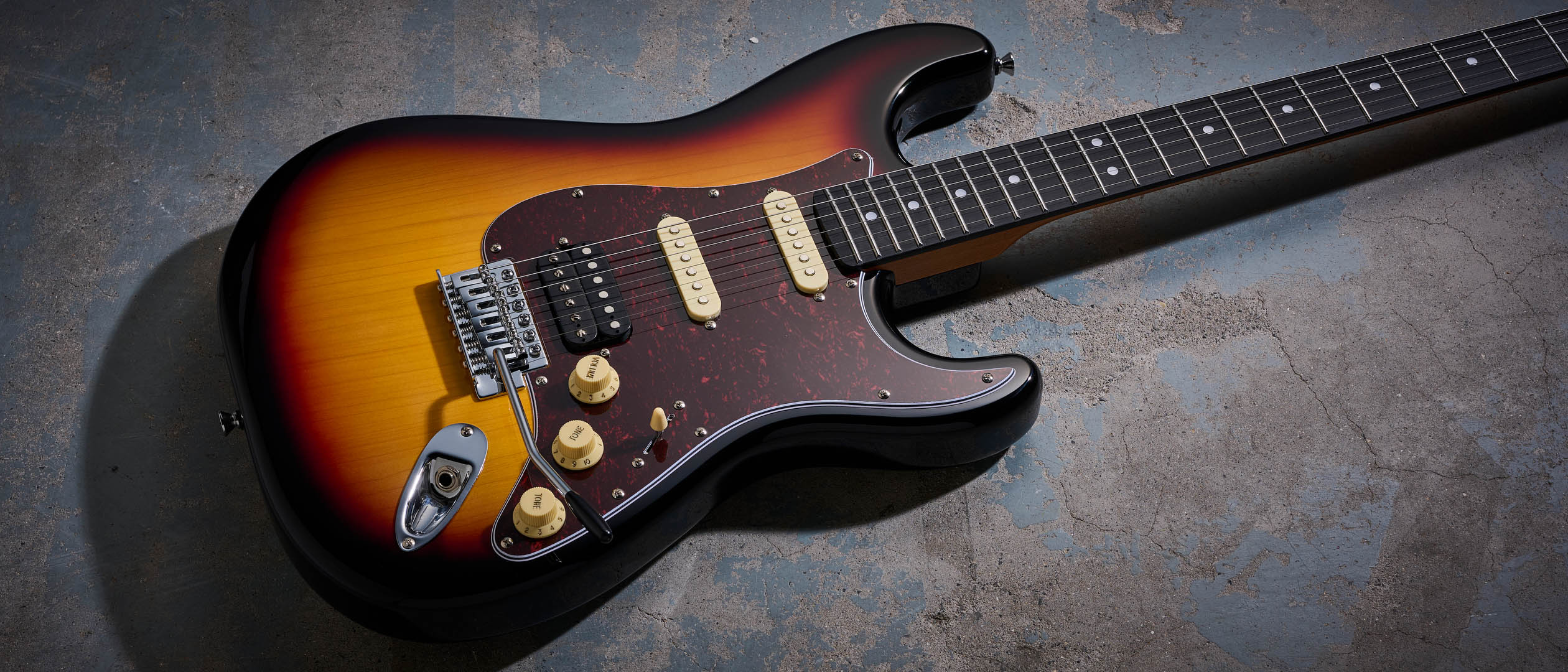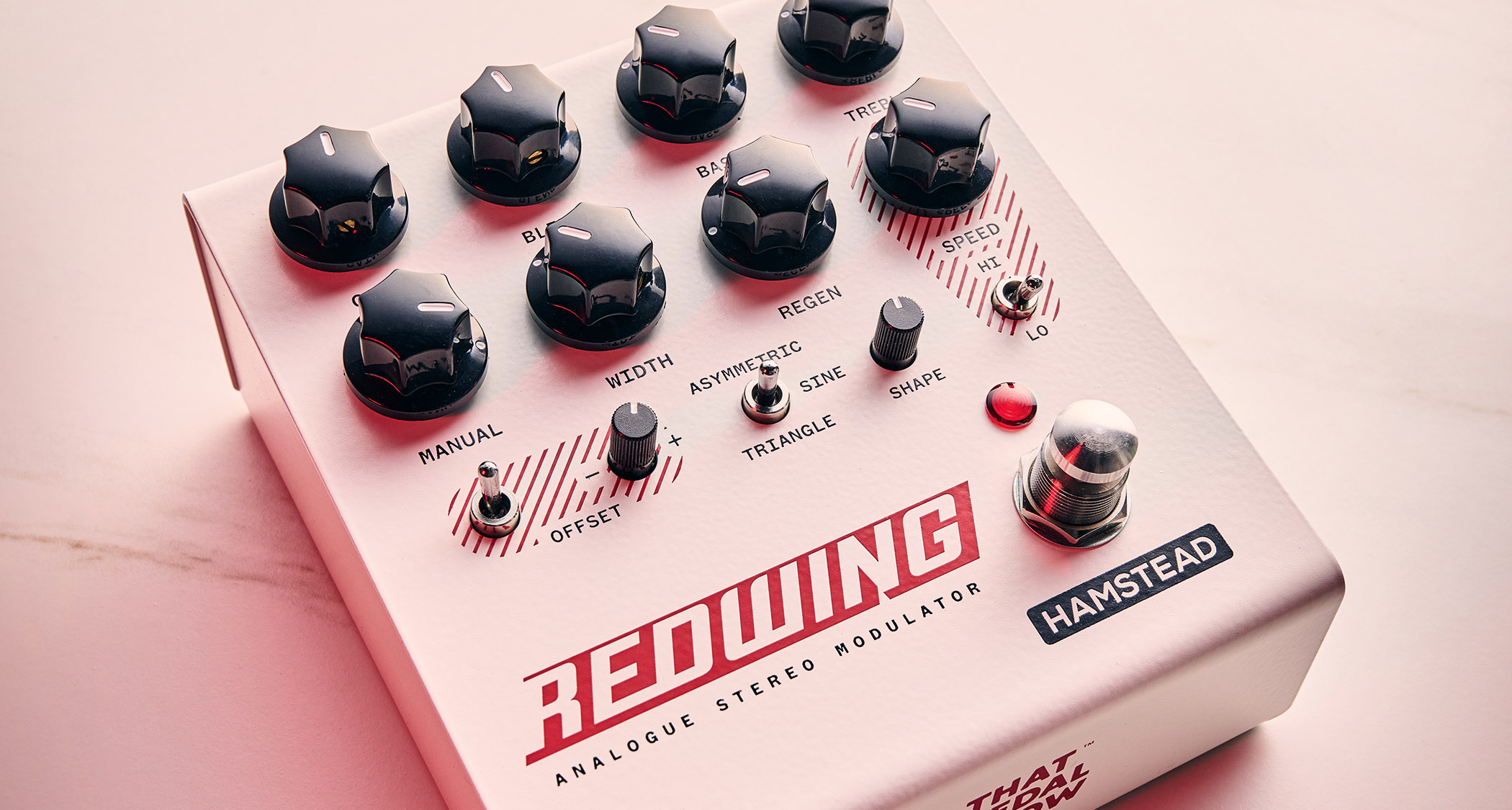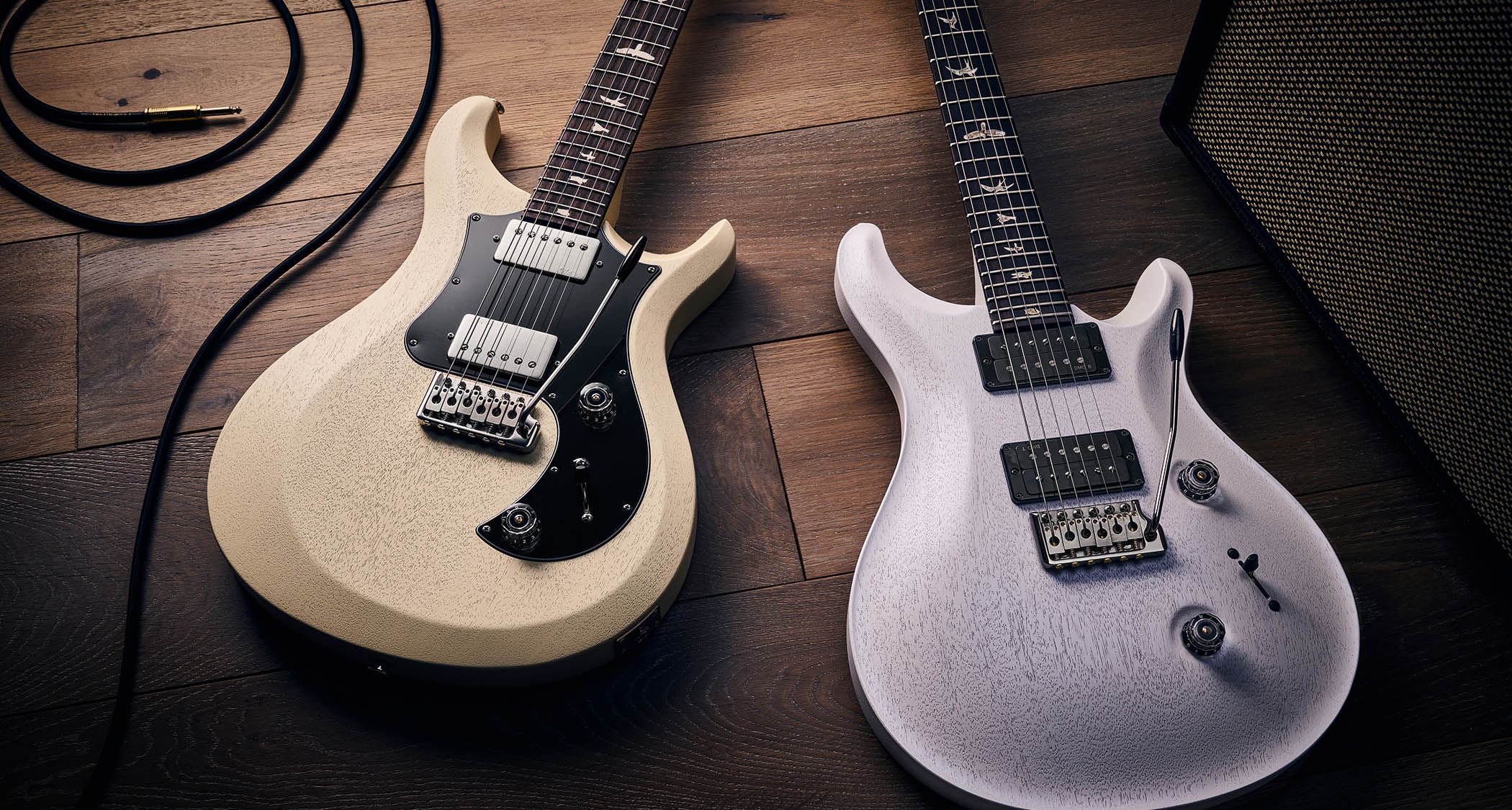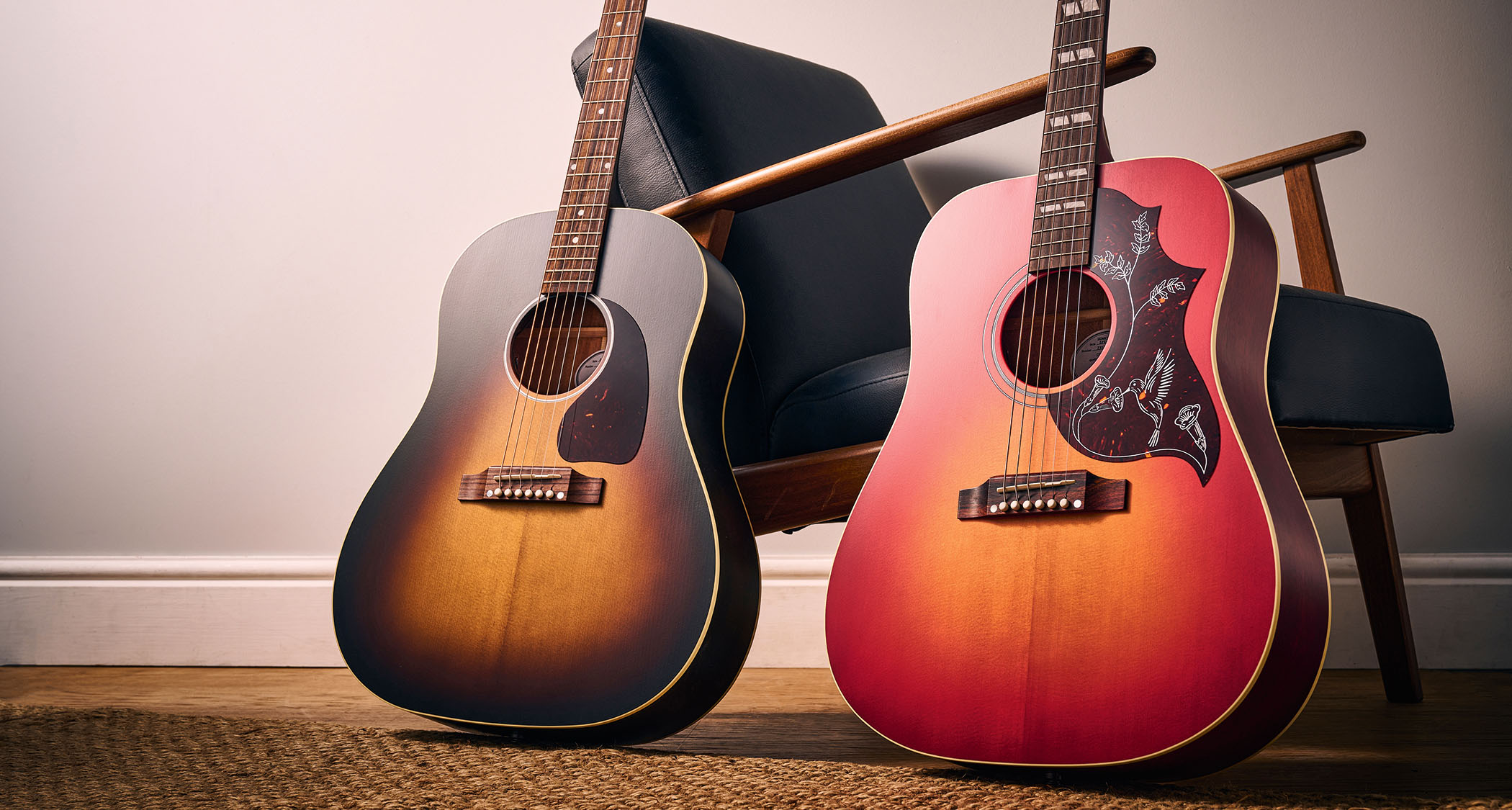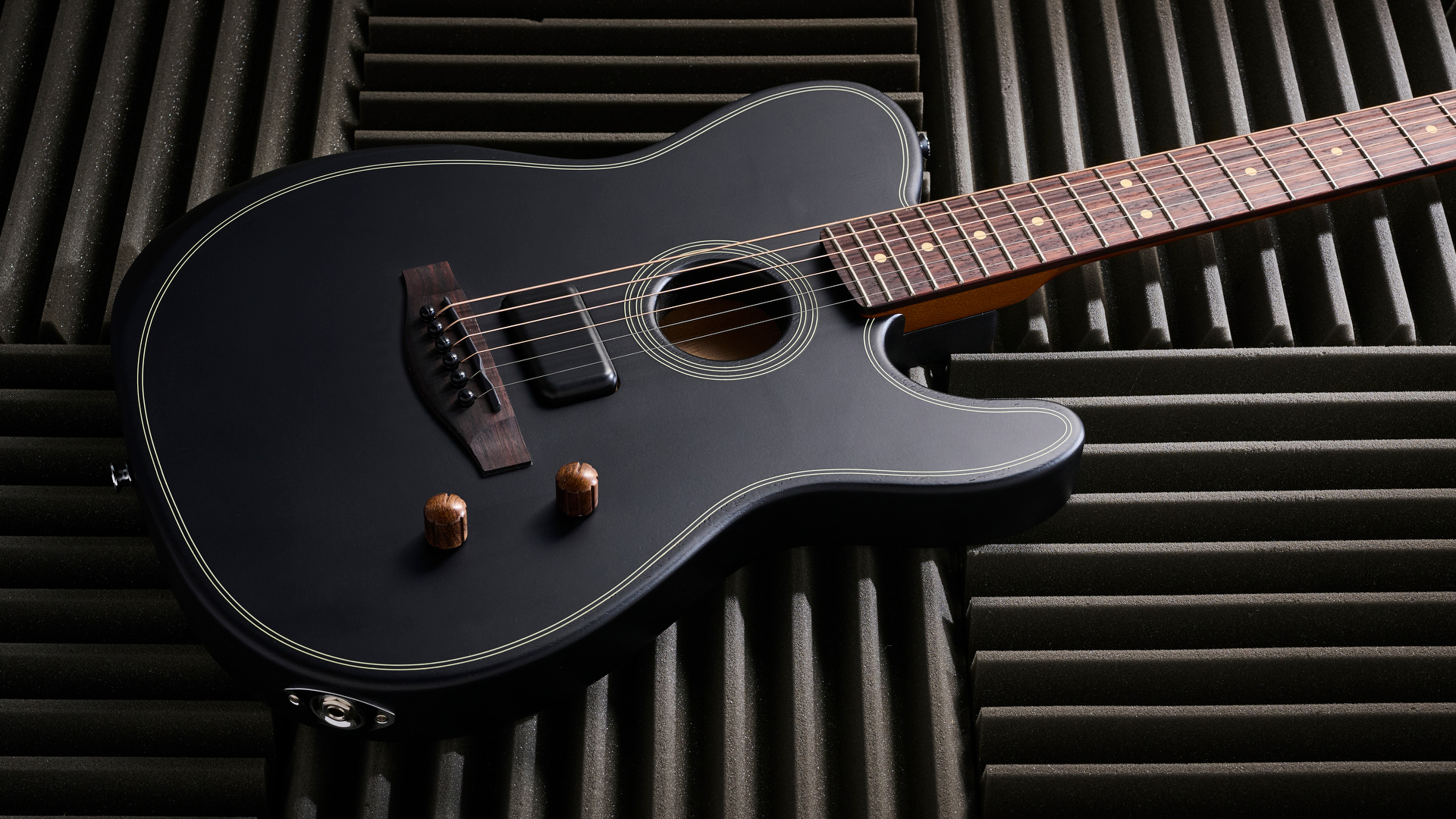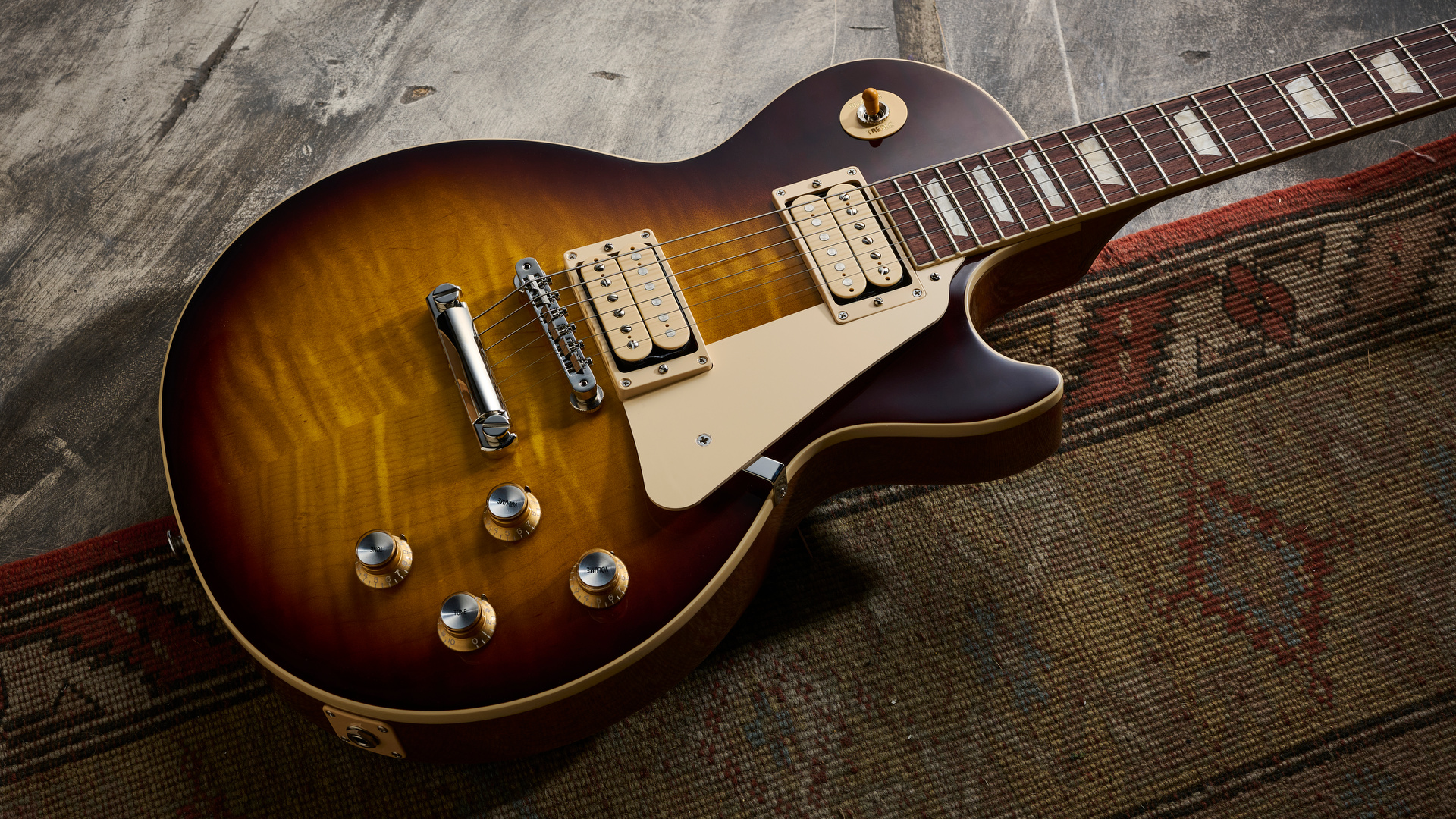Guitar World Verdict
Perhaps the ultimate working bass: Looks awesome, sounds even better
Pros
- +
Tones.
- +
Balance.
- +
Playability.
Cons
- -
None.
You can trust Guitar World
As you’ll recall, the buzz at Winter NAMM 2020 revolved around the new licensing and distribution tie-up between Sadowsky and Warwick – two of the most respected names in bass guitar – coming together to produce and distribute a new range of European-made Sadowsky basses. How does their VJ5 stack up against the competition?
Build Quality
At first glance, what we have here is another five-string Jazz bass, but appearances can be deceptive. The biggest departure from the J template is the body shape, which is sleeker, smaller, lighter, and even more comfortable to play than the original.
Like all Sadowsky basses, in terms of construction there’s little here that differs from the traditional tried-and-tested norm, but even a cursory glance reveals Warwick’s high standards of production.
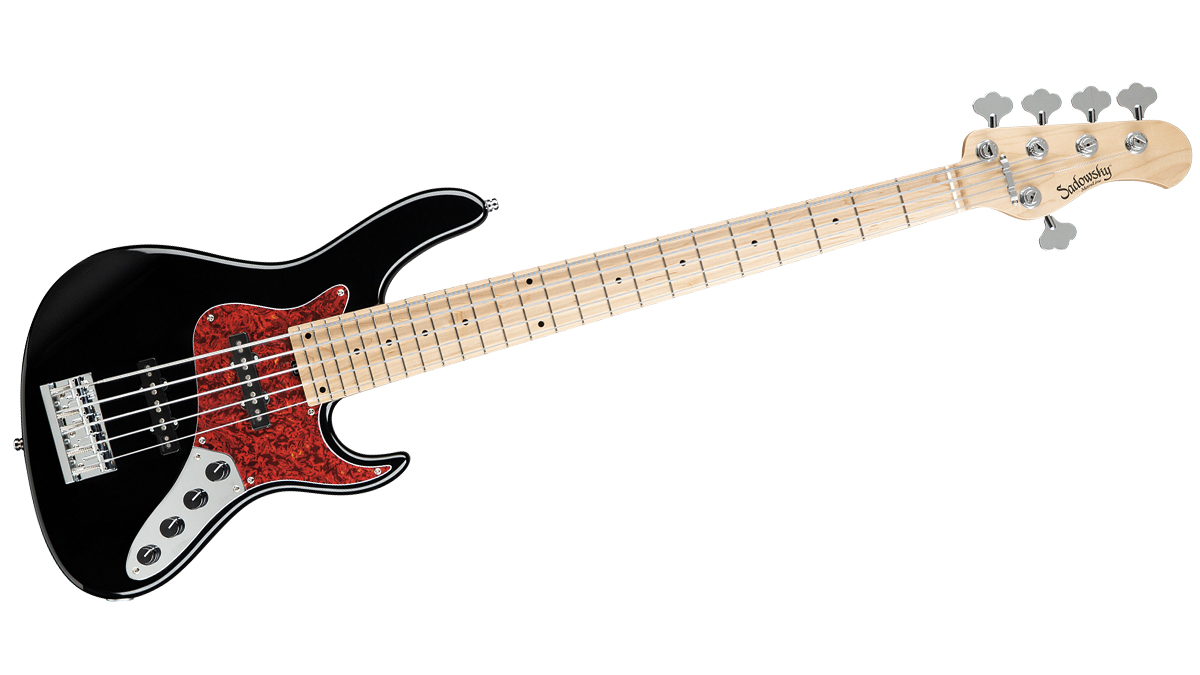
The pale satin maple 24-fret neck attaches to the body with an impeccable, air-tight fit, and is secured with four screws set into stainless steel ferrules. There’s no sculpting to the heel joint other than a generous radius to the body edges behind the neck pocket, but to a large extent the slim neck, narrow body, and deep cutaway of the lower bout negate the need for this, with access right up to the second octave pretty much unhindered.
There are some neat touches to the hardware, including Warwick’s Just-A-Nut lll and S-security straplocks. Elsewhere, the lightweight, open tuners, and Sadowsky quick-release bridge are both of high quality, as befitting a bass of this standard. The black knurled aluminum controls have a smooth, linear action, and removing the rear cover plate reveals neat soldering and high-quality components inside.
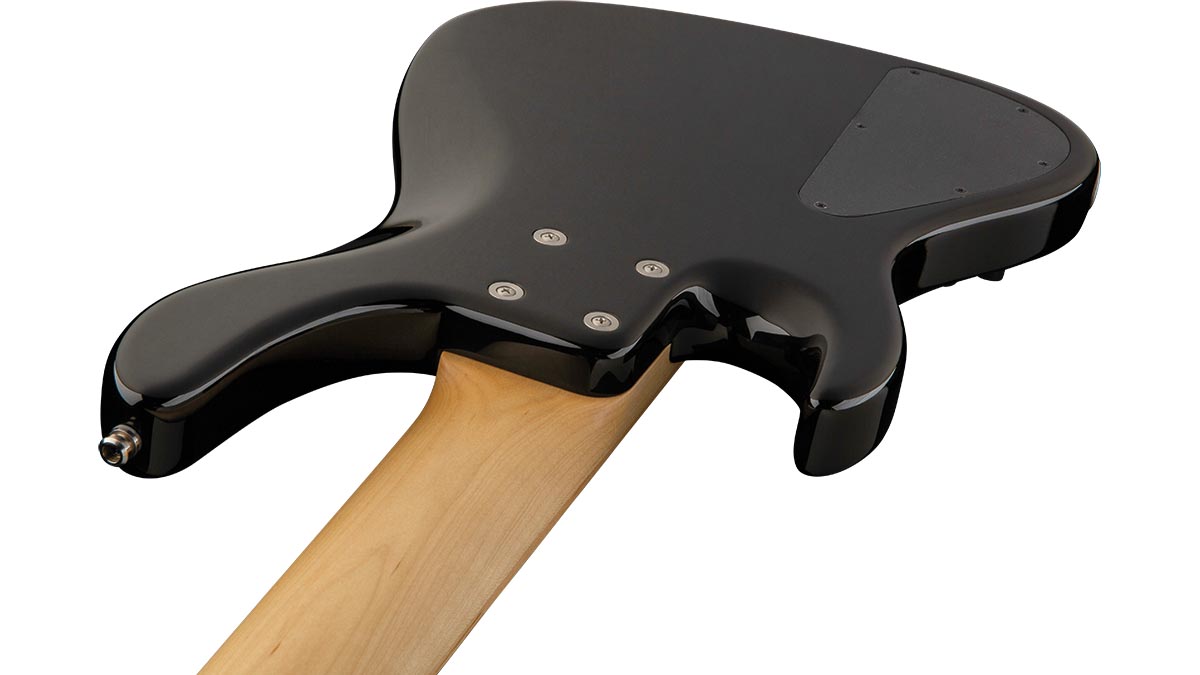
Talking of electronics, the MetroLine has a Sadowsky-designed preamp, powered by a single nine-volt battery and activated as soon as the cable is plugged in. The Warwick MEC pots for the bass and treble controls are boost-only, so there’s zero boost when the controls are turned all the way down; the push/pull VTC control is a passive mid circuit, with the maximum setting being a flat EQ.
As you turn this control back, the treble components in the signal are gently cut, giving a warm, vintage vibe to the sound. Pull up the VTC and you bypass the preamp altogether, giving you a single passive tone control.
Turning the pickup pan control counter-clockwise increases the balance towards the neck pickup, and clockwise to select the bridge pickup. This still catches me out – even on my own bass – but it’s an easy enough job to swap two wires on the pot so that it operates in the opposite way.
Sounds and Playability
The most important aspect of Roger Sadowsky’s basses is the sound, just as it always has been. Playability and ergonomics are crucial, and looks are very important too, but these are and always have been in the service of a great bass tone. One example of this philosophy is weight.
Sadowsky has always gone to great lengths to minimize poundage, originally seeking out the lightest ash for the basses’ bodies that he could find – just like the swamp ash used on this VJ5. At just 8.4 lbs (3.8 kg) and despite the smallest hint of neck dive, balance is pretty much ideal, making this a light, comfortable bass to play, whether standing or seated.
The 34” scale neck with its 12” radius maple fretboard is one of the most playable you’ll ever lay your hands on. As well as being perfectly finished and fretted with 24 nickel silver frets, the long scale length means a nice taut B-string, which gives an evenness across the strings that translates into almost effortless playability.
Plug in, and it’s immediately clear why Sadowsky basses have been revered by the world’s top players for decades. The purity of tone is amazing, and however the stacked bass and treble tone controls are set, there’s a light openness to the treble frequencies and a rare focus and clarity to the bass. These, used in conjunction with the VTC control, offer a huge range of sounds, always with the emphasis on the uncolored purity of those crucial mids.
Sadowsky was a pioneer in using boost-only treble and bass controls at a time when most other luthiers were extolling the use of powerful cut and boost active EQ circuits. Hearing the VJ5 in action illustrates just how right he was.
Conclusion
Roger Sadowsky virtually invented the custom-made ‘super-Jazz’, taking a classic design and making improvements where he felt necessary, while retaining many aspects of the original. His two central design tenets – a lightweight body and passive hum-cancelling pickups with a simple boost-only EQ – made his basses among the very best-sounding instruments available.
They still are. This MetroLine JV5 costs considerably less than a NYC Sadowsky, but it loses virtually nothing with regards to sound and little in terms of construction. The tie-up with Warwick should guarantee not just a high and consistent quality in terms of build, but for the first time in nearly 40 years, availability, and affordability.
Specs
- PRICE: $3,670 / £2,129
- MADE IN: Germany
- BODY: Lightweight American swamp ash
- NECK: Maple, 34” scale
- NECK JOINT: Bolt-on
- Nut width: 47.5mm
- FINGERBOARD: Maple
- FRETS: 24
- PICKUPS: Two passive Sadowsky hum-cancelling soapbars
- ELECTRONICS: Sadowsky active 9V preamp
- CONTROLS: Volume, pickup pan, Vintage Tone Control with push/pull function for preamp bypass, stacked treble and bass (boost only)
- HARDWARE: Chrome quick-release Sadowsky bridge, lightweight Sadowsky branded tuners, Just-A-Nut adjustable nut, S-Security straplocks
- WEIGHT: 8.4 lbs
- CASE/GIG-BAG INCLUDED?: Deluxe Sadowsky portabag
- LEFT-HAND OPTION AVAILABLE?: Yes
- CONTACT: Sadowsky
“An esoteric boutique vibe, superb ergonomics and a powerful, unique preamp – Tobias is back”: Tobias Growler IV review
“Affordable versions of the three best basses I've ever held in my hands”: Sterling by Music Man completes its trilogy of Joe Dart signature models with a trio of made-to-order basses that cost less than $500
